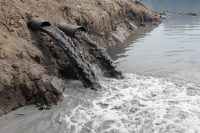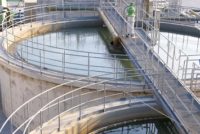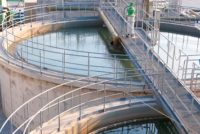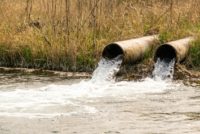On episode 87 of EHS On Tap, Mike Munnagle, director of industrial water and remediation at Anguil, and Tim Jaglinski, senior application engineer at Anguil, talk about industrial wastewater treatment. This episode is presented by Anguil.
On episode 12 of EHS On Tap Two-Minute Warning, Mike Munnagle, director of industrial water and remediation at Anguil, and Tim Jaglinski, senior application engineer at Anguil, about what you need to know about industrial wastewater treatment.
The Government Accountability Office (GAO) reports that almost 11,000 facilities exceeded their National Pollutant Discharge Elimination System (NPDES) permitted wastewater discharge limits and illegally discharged wastewater pollutants in 2018. “EPA has a goal to reduce by half significant noncompliance with individual NPDES permits by the end of FY 2022,” according to the GAO. “But the […]
The EPA announced $6.5 billion in new funding for water infrastructure projects on April 27, 2021. $5.5 billion is being made available in this round of funding under the Water Infrastructure Finance and Innovation Act (WIFIA) program, with another $1 billion in funding for the state infrastructure financing authority WIFIA (SWIFIA) program.
Environmental protection has not proven to be a significant issue as the world grapples with the coronavirus (COVID-19) pandemic. One unexpected positive development is an improvement in air quality. At some point in the future, agencies, advocacy groups, and industrial organizations will likely make some use of data from satellite imagery showing less air pollution […]
With the Utility Water Act Group (UWAG) at its side, the EPA successfully defended itself against allegations by environmental groups that its postponement of several deadlines in its 2015 Effluent Limitations Guidelines [ELGs] and Standards for the Steam Electric Power Generating Point Source Category (2015 Rule) violated both the Clean Water Act (CWA) and Administrative […]
After acquiring new information, the EPA has decided not to revise its June 28, 2016, Effluent Limitations Guidelines and Standards for the Oil and Gas Extraction Point Source Category. That action finalized pretreatment standards for unconventional oil and gas (UOG) facilities based in part on the Agency’s understanding that no such facilities in the country […]
The EPA’s SPCC Guidance for Regional Inspectors (Guidance) notes that the applicability of the Agency’s Spill Prevention, Control, and Countermeasure (SPCC) regulations (40 CFR Part 112) to oil/water separators (OWSs) depends on the “intended use of the OWS.” One intended use that exempts an OWS from the SPCC program is wastewater treatment. The exemption means […]
Opposing opinions by three U.S. appeals courts (two issued by the same circuit on the same day) have led to a decision by the U.S. Supreme Court to address the core Clean Water Act (CWA) question—Is a point source discharging pollutants to navigable water via a groundwater pathway the functional equivalent of a direct discharge […]
Back in April 2018, ex-EPA Administrator Scott Pruitt announced that the Agency intended to begin rulemaking “to provide certainty surrounding the use of ‘blending’ by wastewater treatment plants.” The EPA has now scheduled three meetings to receive public input on how blending might be permitted to account for infiltration and inflow (I/I) into separate sanitary sewers. […]








